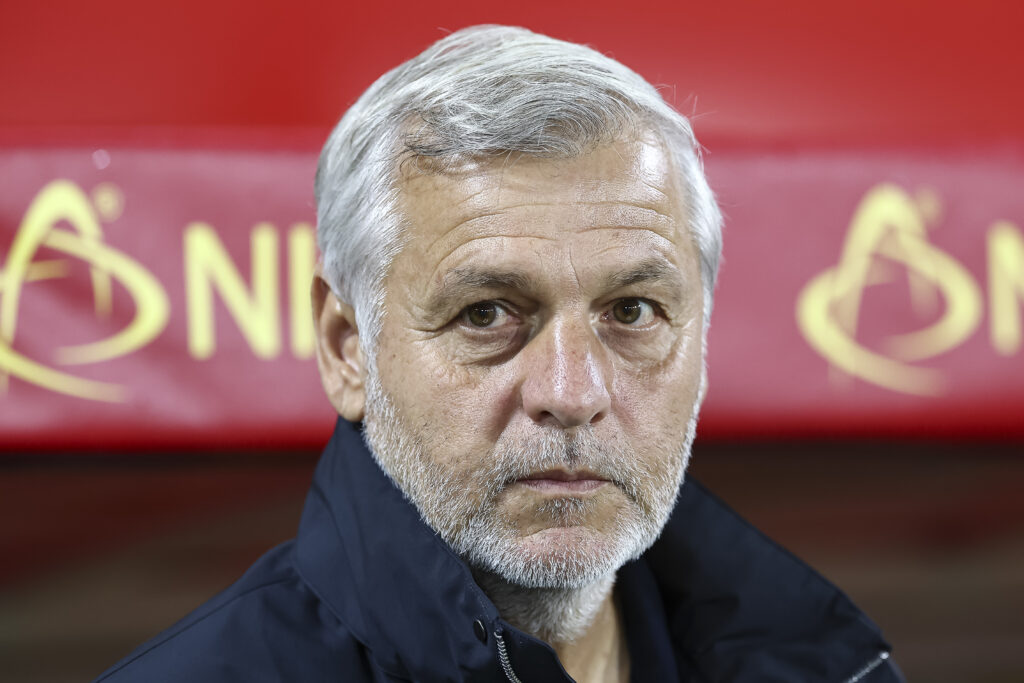South Asia monsoon: climate change’s dangerous impact on lifeline rains
South Asia’s annual monsoon rains sustain more than a billion people, but climate change is making them increasingly erratic and deadly, with poor infrastructure only exacerbating the impact.Farming, water supplies and hydropower across much of South Asia rely on the seasonal rains, but research shows climate change is causing longer dry spells punctuated by bursts of extreme rain.- What is the monsoon? -Derived from the Arabic “mausim”, or season, the monsoon is a reversal of winds driven by differences in land and sea heating. These patterns are observed in several places on Earth.In South Asia, the Southwest Monsoon brings rains that start in southern India in late May and sweep north until September.By October, the Northeast Monsoon begins. As the land cools, winds blow seaward, picking up moisture from the Bay of Bengal before raining over southern India and Sri Lanka.- What changes are happening? -“Climate change is beginning to reshape the behaviour of the Indian monsoon”, India’s government said this year, warning of “more frequent” long, dry stretches and “more intense” wet spells.Extreme daily rainfall events rose about 75 percent between 1950 and 2015, according to the India Meteorological Department.Nearly half the season’s rain now falls within “just 20 to 30 hours,” a government briefing note said.In Pakistan, the monsoon arrived earlier than usual this year, and “excessive” rain fell in the last week of June, meteorological office spokesman Irfan Virk told AFP.By mid-August, the country had received 50 percent more rain than last year, according to disaster authorities.- What role does climate change play? -The full impact of climate change on monsoon patterns is not entirely clear because of the complexities involved in the seasonal rains.But “there is a tendency and expectation for more intense and perhaps prolonged monsoons,” said Agus Santoso at University of New South Wales’ Climate Change Research Centre.Warmer seas evaporate more moisture into the air, and a warmer atmosphere can hold more moisture, he explained.”So when it rains, it pours.”But there are other considerations, including the impact of El Nino and La Nina weather patterns, which are themselves more variable, “likely due to climate change,” added Santoso.And predicting future changes is complicated, said climate scientist Shakil Romshoo of the Islamic University of Science and Technology.”In most of the Indian subcontinent and mountainous regions in the world, we don’t have a very dense network of observation,” he told AFP.This makes it “difficult to discern patterns and predict.”- What is the impact? -The monsoon has long brought floods and landslides to South Asia, but the annual toll has risen over the last decade, experts in India said.This year, heavy rains also devastated India’s breadbasket Punjab region, where rain surged nearly two-thirds above average.Erratic rains impact soil health and irrigation timing.”A delay or failure in this season can affect food supply, livelihoods, and the wider economy”, India’s government says.In Pakistan, over 1,000 people have been killed in this year’s monsoon, nearly triple the figure last year, and rains have prompted massive evacuations in the country’s Punjab region.Standing water can carry disease or encourage reproduction of vectors like mosquitos. Flood damage and evacuations also threaten livelihoods and education across the region.- What else contributes? -“Accelerated glacier melt” and deforestation weaken rain-soaked slopes and raise the risk of deadly landslides, according to the Nepal-based International Centre for Integrated Mountain Development.And vast highways, tunnels, dams and railways carved into mountains without adequate environmental checks only worsen the problem, experts say. “Rapid, unplanned development, deforestation, river-channel modifications, and poorly sited infrastructure destabilise slopes and block natural drainage,” said Anjal Prakash, climate scientist at India’s Bharti Institute of Public Policy.
Italie: Nico Paz, dernière saison en paix à Côme
Scott McTominay, Luka Modric ou Christian Pulisic peuvent s’inquiéter: pour le titre de meilleur joueur du Championnat d’Italie cette saison, il faudra aussi regarder du côté de Côme où évolue la sensation Nico Paz qui suscite déjà bien des convoitises.En ouverture de la 5e journée du Championnat d’Italie, Côme reçoit samedi (15h00) la Cremonese. Dans les tribunes du Stadio Giuseppe Sinigaglia, auront certainement encore pris place quelques scouts, superviseurs ou émissaires de grands noms du football européen.Tous veulent voir une phénomène de 21 ans, au parcours intriguant.Fils d’un ancien international argentin, qui a participé au Mondial-1998 en France, Paz est né aux Canaries et a été formé au Real Madrid, mais a attendu de rejoindre Côme en août 2024 pour exploser et affoler les compteurs.Depuis qu’il a rejoint la Serie A, le longiligne milieu de terrain (1,88 m pour 74 kg) a fait des dégâts avec ses dribbles déroutants et sa vision du jeu foudroyante.Depuis le début de la saison 2025-26, il a déjà marqué deux buts et distillé trois passes décisives, qui s’ajoutent aux six réalisations et neufs “passes dé” de l’exercice précédent.Si Côme, de retour l’an dernier dans l’élite après plus de vingt ans d’absence, est septième de Serie A et rêve d’Europe, Paz y est pour beaucoup.C’est lui qui, par exemple le week-end dernier, a relancé son équipe dominée par la Fiorentina, avec un centre parfait (65e) et une ouverture lumineuse dans le temps additionnel (90e+3), synonymes de victoire 2 à 1.- Comparaisons avec Messi -Et immanquablement les comparaisons avec son illustre compatriote Lionel Messi ont redoublé. A commencer dans les propos de son entraîneur Cesc Fabregas.”Toutes les équipes qui affrontaient Barcelone ne voulaient pas que Messi touche le ballon et il marquait quand même trois buts (…) Notre adversaire ne voulait pas que Nico touche le ballon et il a pourtant été décisif”, a rappelé l’ancien milieu de terrain d’Arsenal et du Barça.”Tout le monde le regarde différemment maintenant, c’est un nouveau challenge pour lui comme pour nous”, a-t-il reconnu.A Côme, dans un club faisant la part belle aux jeunes, Paz a trouvé l’environnement idéal pour éclore, notamment grâce à une forte colonie espagnole.Lancé par Fabregas et sélectionné pour la première fois en équipe d’Argentine en octobre dernier, Paz a été rapidement adoubé par la recrue-star de l’été, Alvaro Morata: “C’est l’un de ces joueurs qui sont différents des autres”, a admiré le capitaine de l’équipe d’Espagne, sacrée championne d’Europe en 2024.”Si j’ai un conseil à lui donner, c’est de qualifier Côme pour l’Europe et ensuite de faire ce que son coeur lui dictera”, a-t-il martelé.Car si Côme, propriété d’une fratrie indonésienne parmi les plus riches du monde, a de l’ambition, l’horizon de Paz devrait vite s’élargir et le ramener à… Madrid.Acquis pour six millions d’euros, mais désormais valorisé à 35 millions par le site spécialisé Transfermarkt, le phénomène semble destiné à un retour au Real: le club où il a joué de 12 à 19 ans, dispose en effet d’une clause de rachat de 10 millions d’euros.
Ligue 1: choc Lille-Lyon, l’OM veut confirmer à Strasbourg
Lille et Lyon s’affrontent samedi dans un des chocs de la cinquième journée de Ligue 1 où Marseille voudra à Strasbourg continuer sur sa lancée après avoir infligé au Paris Saint-Germain sa première défaite de la saison lundi.Punis à Bollaert (3-0) pour leur première défaite depuis plus de trois ans dans le derby du Nord, les Lillois, cinquièmes du championnat avec 10 points, cherchent un rebond après avoir sombré face à l’intensité lensoise.Bruno Genesio, en quête “d’engagement” de la part de ses joueurs, va retrouver samedi son ancien club de coeur, Lyon, qui réalise un début de saison comptablement solide, malgré les doutes sur son effectif après avoir dû fortement réduire sa masse salariale afin d’éviter la relégation administrative.Victorieux à Angers, l’OL n’a connu qu’une défaite en championnat et pointe à la troisième place de Ligue 1, à égalité de points (12) avec le leader monégasque et le PSG, deuxième.Les Parisiens devront, eux, rapidement digérer leurs émotions du début de semaine. Battus à Marseille (1-0) dans un Classique initialement prévu dimanche mais reporté en raison des intempéries frappant la région, les Parisiens ont également vécu la joie du Ballon d’or décroché dans le même temps à Paris par Ousmane Dembélé après une saison historique.Avant de retrouver la Ligue des champions avec une affiche contre Barcelone mercredi, les champions d’Europe, sans plusieurs joueurs blessés dont Dembélé, reçoivent Auxerre, qui se déplace sans pression après s’être offert un bol d’air en dominant Toulouse 2-1.Tombeurs des Parisiens, les Marseillais, sixièmes, ont mis derrière eux leur mauvais début de saison, plombé par l’affaire Rabiot et son départ rocambolesque du club.Le déplacement à Strasbourg s’annonce cependant périlleux: avec 12 points, les Alsaciens, quatrièmes trois longueurs devant l’OM, ont confirmé leur potentiel offensif sur la pelouse du Paris FC (3-2), grâce notamment à leur attaquant Emanuel Emegha, buteur et passeur à Jean-Bouin.Mais le cas de l’attaquant néerlandais, qui a annoncé son futur départ pour Chelsea, club partenaire, cristallise les tensions entre la direction et les ultras, qui pourraient à nouveau se manifester vendredi.En conflit depuis le rachat du club par le consortium américain BlueCo en 2023, les ultras ont affiché des banderoles critiques envers Emegha et la multipropriété, s’attirant les foudres du président Marc Keller et de l’entraîneur Liam Rosenior.Monaco, leader après sa victoire au score flatteur contre Metz (5-2), a l’occasion de conforter sa première place à Lorient, toujours coincé à l’avant-dernière place après son nul au Havre.En milieu de tableau, Rennes (8e), qui n’a pu faire mieux qu’un nul à Nantes après avoir sombré en deuxième période, peut se relancer contre Lens (7e), euphorique après son derby victorieux.L’ambitieux Paris FC, 11e après sa défaite à domicile contre Strasbourg, se déplace à Nice, 12e et en plein marasme. En perdition à Brest (4-1), les joueurs de Franck Haise ont également perdu en Ligue Europa contre la Roma (2-1) pour le début à domicile de leur campagne européenne.Le programme de la 6e journée de Ligue 1:Vendredi(20h45) Strasbourg – MarseilleSamedi 27 septembre (17h00) Lorient – Monaco (19h00) Toulouse – Nantes (21h05) Paris SG – Auxerre Dimanche (15h00) Nice – Paris FC (17h15) Angers – Brest Metz – Le Havre Lille – Lyon (20h45) Rennes – LensClassement: Pts J G N P bp bc dif1. Monaco 12 5 4 0 1 13 7 62. Paris SG 12 5 4 0 1 10 4 63. Lyon 12 5 4 0 1 7 3 44. Strasbourg 12 5 4 0 1 8 5 35. Lille 10 5 3 1 1 13 8 56. Marseille 9 5 3 0 2 10 4 67. Lens 9 5 3 0 2 8 5 38. Rennes 8 5 2 2 1 7 8 -19. Toulouse 6 5 2 0 3 7 9 -210. Auxerre 6 5 2 0 3 4 6 -211. Paris FC 6 5 2 0 3 9 12 -312. Nice 6 5 2 0 3 6 9 -313. Angers 5 5 1 2 2 3 4 -114. Brest 4 5 1 1 3 9 11 -215. Le Havre 4 5 1 1 3 6 8 -216. Nantes 4 5 1 1 3 3 5 -217. Lorient 4 5 1 1 3 6 13 -718. Metz 1 5 0 1 4 5 13 -8NDLR: Les trois premiers sont directement qualifiés pour la phase de ligue de la Ligue des champions. Le quatrième est qualifié pour le 3e tour préliminaire de la Ligue des champions. Le 5e est qualifié pour la Ligue Europa. Le 6e est qualifié pour les barrages de la Ligue Conference. Les deux derniers sont relégués en Ligue 2 et le 16e dispute un barrage.



